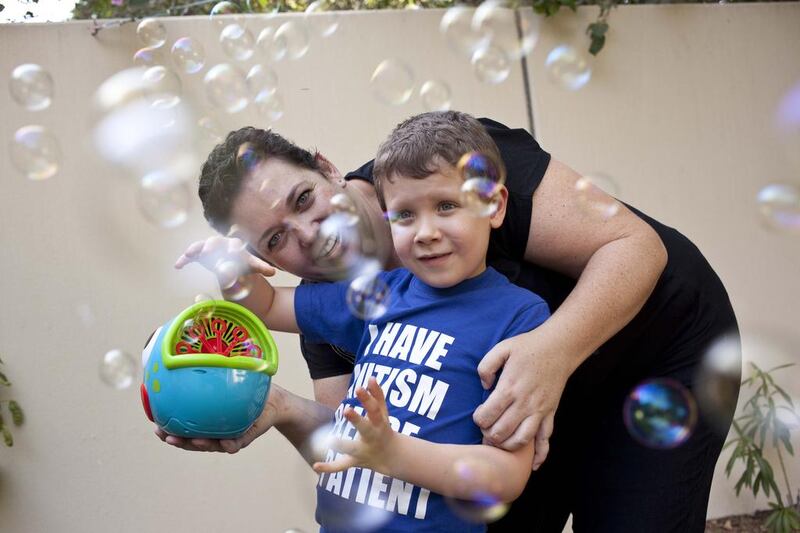DUBAI // Even though her son has not yet reached his seventh birthday, Donna Van Vuuren is already thinking about what his life will be like as an adult.
Six-year-old Ethan had autism diagnosed when he was 14 months.
“I think right from the early days, when you get that first, initial diagnosis, no matter whether you get it at 10 or like we did with Ethan at 14 months, you immediately jump into the future and think, ‘what’s going to happen to my child?’” said Mrs Van Vuuren, a South African mother-of-one who lives in Dubai.
Questions of what her son’s life will be like at the age of 21 and whether he will be employed remain on her mind.
“As a parent, it’s extremely stressful; not only are you dealing with the issues of the current age but you are worrying about the future already,” she said.
“A lot of research and a lot of schooling and all that goes into the early intervention side of things, which is fantastic, but what happens when they reach the age of no longer fitting into the school education system?
“Who is going to employ my child so that he can at least live a happy life, independently, and be able to look after himself? Having a job is what does that for most of these young adults.”
Adam Griffin, who works for the Dubai branch of Stepping Stones – a disability service that provides therapies and educational services for children, teenagers and young adults with autism – is urging companies to offer work placements to teenagers who take part in one of its programmes.
Mrs Van Vuuren, 36, welcomed the idea.
“They are so focused if they find something that they enjoy. My son is absolutely fascinated with computers and technology, which is a common thread among virtually all autistic children and young adults,” she said.
“They are the kind of people, that if you say to them you have to sit in front of a computer and input data for six hours non-stop, and if that’s what they enjoy doing, you are going to have to drag them out of there because they are enjoying it so much. They don’t see it as a mind-numbing job.
“There are children who can take a computer apart and put it back together and it works. It’s just a matter of finding where they fit in and developing that, and those companies need to be open towards that.
“They have a place, they just need to be slotted into that place and, within the workplace, they will fit in just fine.”
Ethan had autism diagnosed when the family was still living in South Africa.
“At about 11 months I suspected, because he wasn’t babbling much. He wasn’t pointing,” said Mrs Van Vuuren.
Ethan would concentrate on tasks such as grouping his play blocks together according to their colour, or putting his toy cars in a row, she added.
“There would be children all around him but, to him, they didn’t exist. There was no wanting to play with other children, there was no interest in that whatsoever.”
ecleland@thenational.ae





